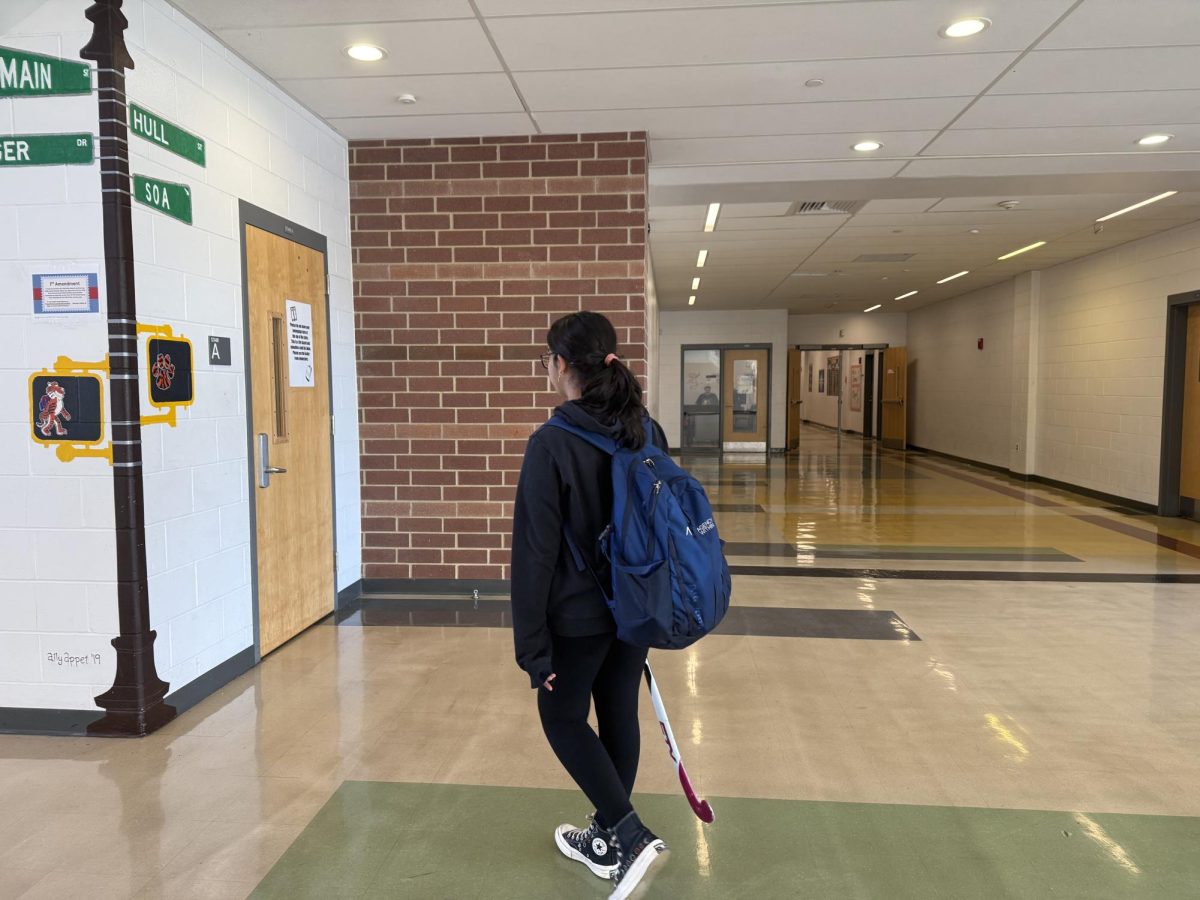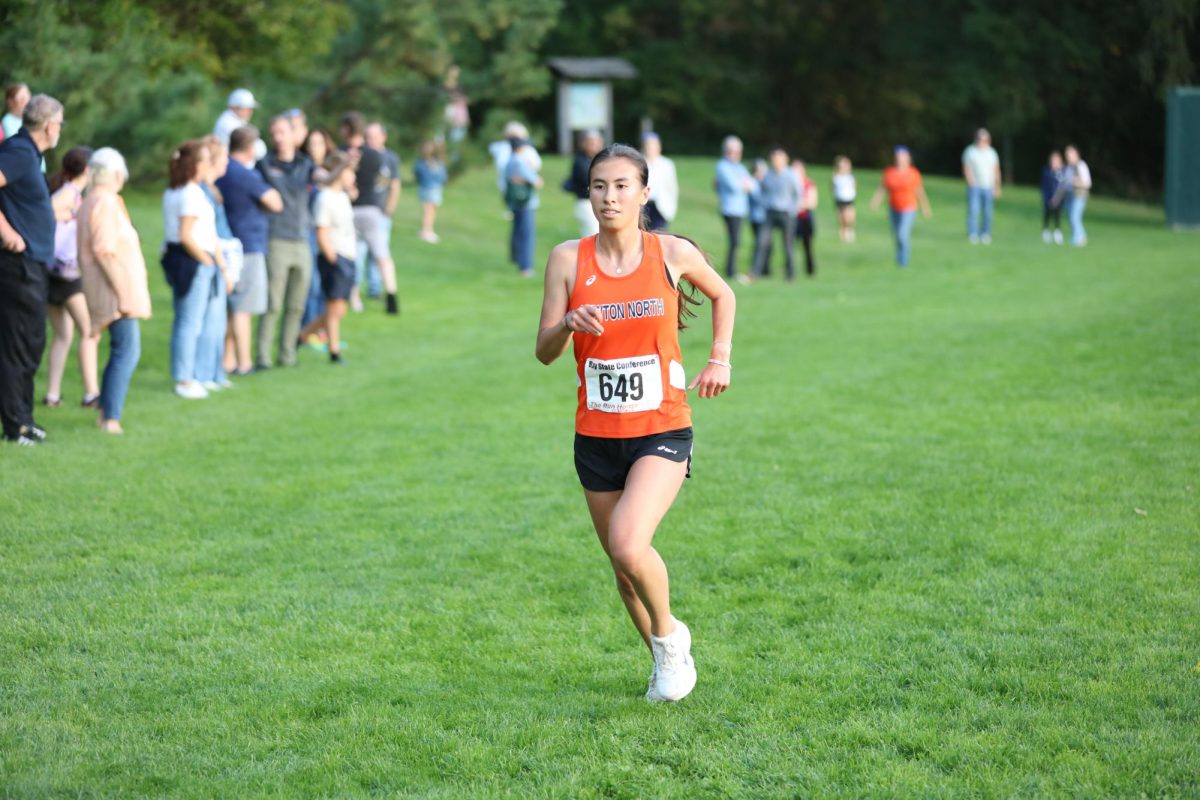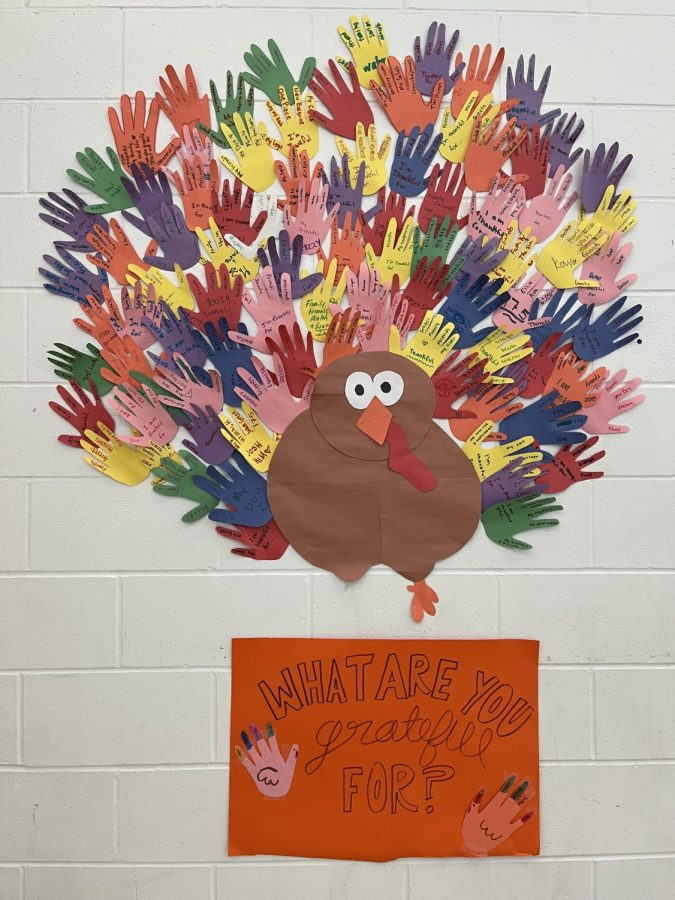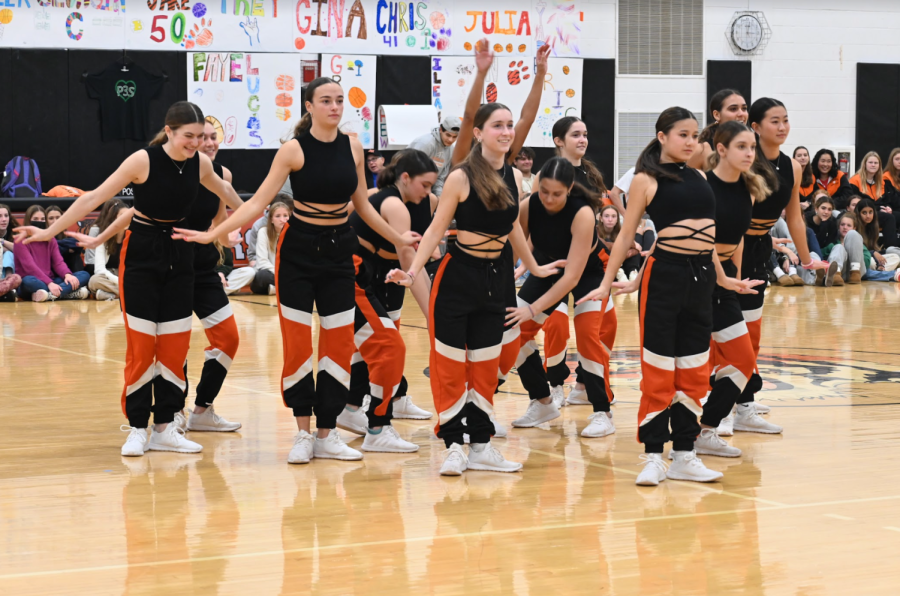Thursday night at 7pm in the Film Lecture Hall, the first Huntington Lecture of this school year was held. The Huntington Lecture series was named to celebrate former principal Jennifer Huntington. Noah Van Niel ‘04 spoke in a presentation entitled, “The Humanities: R.I.P.?”
Huntington opened up the presentation by saying, “Van Niel was my student, and I’ve always been incredibly proud of him.”
“This is a wonderfully rich school and Noah was exceptional,” she described. She detailed Van Niel’s education, graduating this school in 2004 before attending Harvard University. He currently attends the Harvard Divinity School. “It is an incredible privilege to have you as the first student to give a lecture,” she introduced him.
Van Niel discussed the question of whether the study of the humanities in higher education was dying out. He started by framing the question with “the purpose of higher education” and the definition of the humanities.
He discussed higher education’s focus on STEM fields for the clearer paths to employment they provide.
“Society increasingly is requiring us to go to college, which requires us to take out loans, which require us to get jobs that will allow us to pay off those loans,” he explained. “There is a pattern of twofold fear: of not being educated enough, but then also that they won’t be able to pay for that education.”
He described how this accounts for a pattern of studying areas in generally more data-driven professions, with a “secure promise of employment with a generous salary.” He drew a graph of the percentage of students who graduated majoring in the humanities. It had decreased from 14% in the 1960s, the period of the baby-boomers, to 7% now after a small rise in the 1990s.
Van Niel discussed how Harvard University had created a “task force” dedicated to studying the decreasing popularity of the humanities. They published a report entitled Mapping the Future showing their work.
“I think the current crisis is a little self-made, as these reports have become big news. Anyone plugged into the world of academia can tell you that the humanities have less enrollment than they used to,” he said.
He explained how a shift to focusing on “Big Data” can be harmful for humankind. “The humanities feel threatened because of the dangers of reducing the more human elements of cultural existence,” he said.
Science has incredible possibilities in predicting election results or structuring sports teams with data analysis, according to Van Niel. He discussed that humanity is not “purely logical or completely rational,” and although these fields are interesting, he wanted to “vouch for” the humanities.
“I believe the study of humanities not only gives us a tool set that we can apply to our life, but the work in and of itself teach us what it is we care about,” he said.
Van Niel explained how a conscious process of taking in our reactions to arts, literature, history, can show humanities majors their inner “selves”.
“We encounter the things humans have produced, created, or valued and treasured over time” when we study the humanities, he said. When engage with those works, we connect with other humans and the cultural sense of the world, past and present.
Van Niel finished his lecture by reading “To Autumn” by John Keats, a poem he described as his all-time favorite, and a great example of the significance of studying the humanities.
“An ancient piece of art can leave you speechless or a work of literature can make you weak at the knees,” he described. “These topics are special.”















































